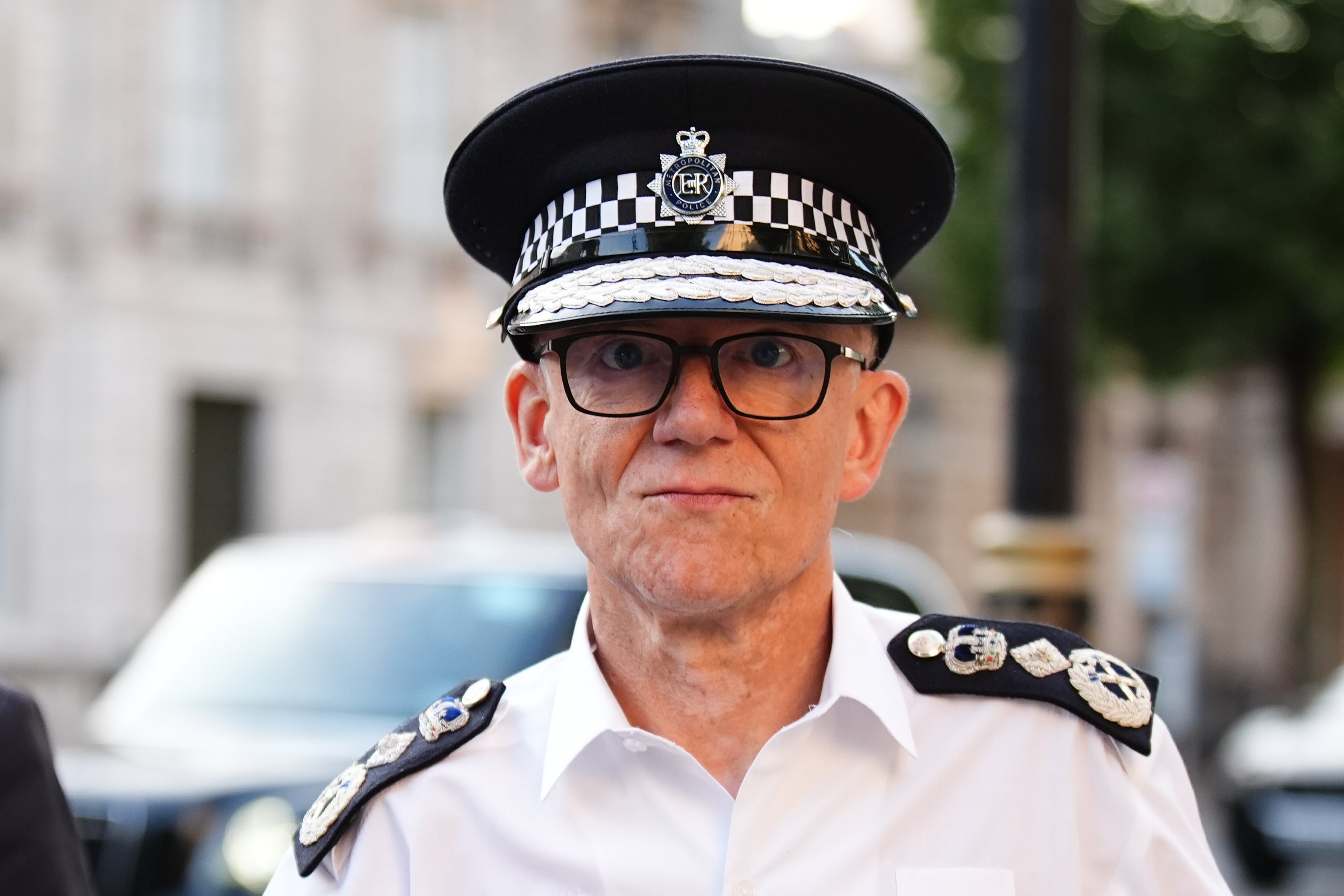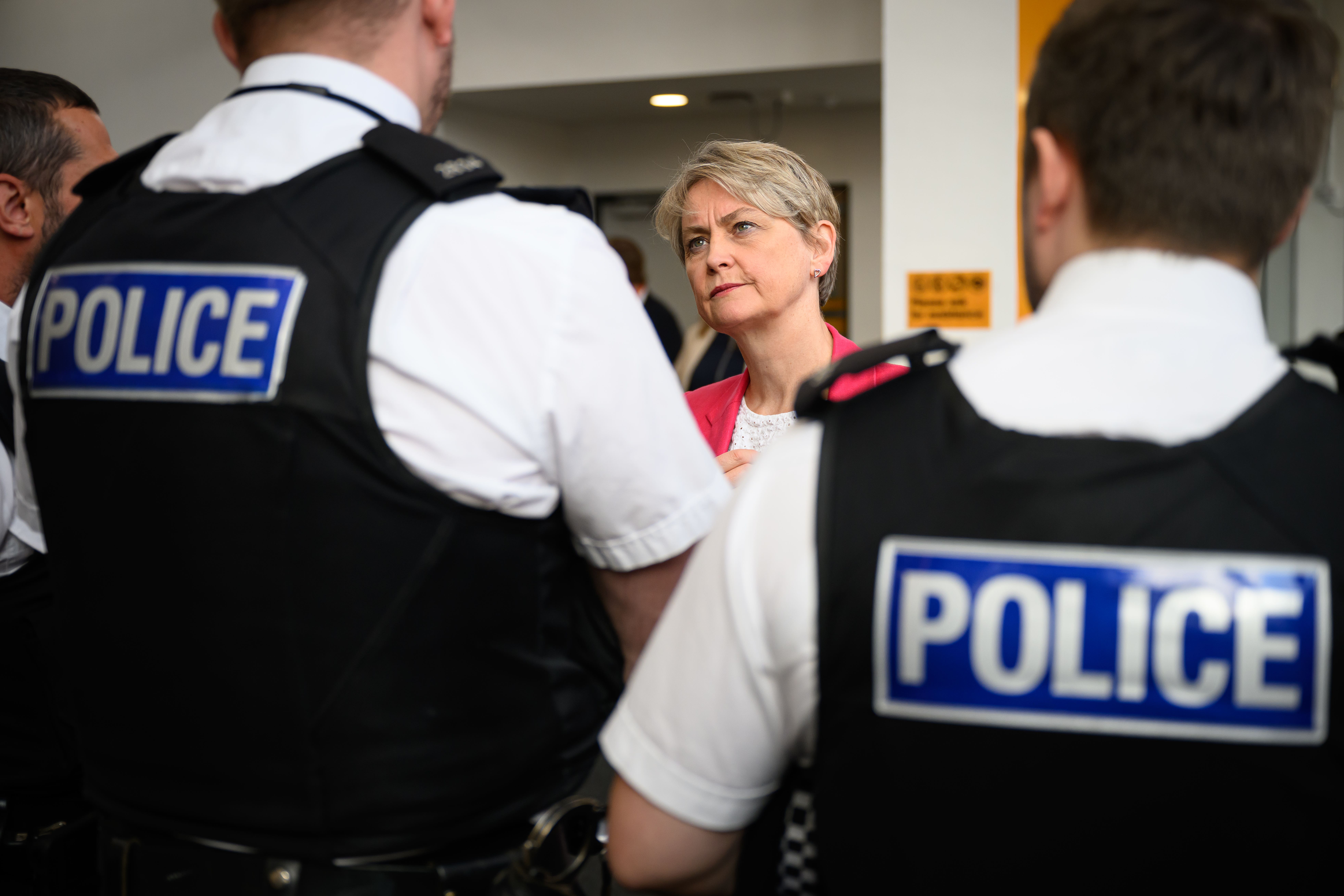
The Metropolitan Police commissioner has hit out at “dangerous narratives” over the police shooting of Chris Kaba by a firearms officer who was cleared of murder, revealing that Kaba’s gang has been linked to 11 shootings in the past year.
Sir Mark Rowley said online commentary, often largely focussed on Kaba’s ethnicity, risked undermining justice in the wake of the shooting as he urged commentators to be more aware of the weight of their words.
“From the outset, over the last two years, the majority of the conversation online focused entirely on Chris Kaba’s ethnicity,” he said while addressing an event in London on Tuesday.
“Rumour and innuendo fuelled quite dangerous narratives about supposed facts that were detached from the evidence presented to court and the verdict delivered by 12 Londoners recently.
“I go as far as to say that some people with huge influence risked undermining the British justice system, and those people should know better.”
Sergeant Martyn Blake was last month unanimously acquitted of murder over the September 2022 shooting of Kaba as he tried to ram his way out of a police stop in Streatham, south London.

The case fuelled fierce debate, with Kaba’s family holding protests after the verdict was delivered, while the government unveiled plans to give firearms officers anonymity in court up until conviction in an overhaul of police accountability.
After the trial, a gagging order was lifted allowing it to be reported that Kaba was a member of the Lambeth “67” gang and would have probably stood trial for attempted murder over a nightclub shooting five days earlier if he had not been killed.
Sir Mark told the event, hosted by Crimestoppers, that the gang was one of the top 10 most active in London and was involved in the exploitation of children, the distribution of drugs and “indiscriminate use of firearms” and had been linked to 11 shootings in the past year.
“We only have got about 95 key offenders at the centre of the gang,” he said. “They’ve got many more associates on the fringes.”
Sir Mark called for an honest conversation about the challenges facing Black communities in London, noting young Black men are 13 times more likely to be murdered than white men. He said gangs like the 67 are a “critical part” of that disproportionality.
He also warned there is a “fundamental problem” with police accountability that was leaving officers more concerned about legal jeopardy than physical jeopardy.

“Policing needed more accountability and more transparency,” he said. “I would never, ever dispute that, but I think the sense that officers are now withdrawing from using some of their more sensitive and contentious powers is evidence that... the prospect of legal jeopardy is dominating the officers’ decision-making.”
Last month, home secretary Yvette Cooper announced plans for firearms officers facing criminal proceedings over police shootings to be granted a presumption of anonymity up until the point of a conviction.
It followed reports that Sgt Blake had been forced into hiding after a £10,000 bounty was offered to anyone prepared to kill him.
However, Inquest, which supports Kaba’s family and other victims of state-related deaths, hit out at the plans, insisting the principles of open justice must apply “equally” to police and civilians.







